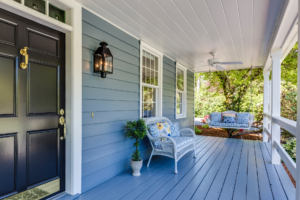Buying a home during a recession can be a challenging but rewarding experience. The key is to be prepared and strategic in your approach. In this article, we’ll explore some tips for buying a home during a recession.
Understand the Market
During a recession, the housing market tends to slow down, and home prices may drop. This is because there are fewer buyers in the market, and sellers may be more motivated to sell their homes. However, not all areas or types of properties may be affected equally. It’s important to research the housing market in your area and understand the trends, including inventory, pricing, and competition.
Determine your Budget
In any market, it’s important to determine your budget before you start looking for a home. During a recession, this is even more critical, as you may face more financial uncertainty. Make sure to consider all of your expenses, including the down payment, closing costs, monthly mortgage payments, and any potential repairs or upgrades. Consider getting pre-approved for a mortgage to give you a better idea of what you can afford.
Look for Distressed Properties
During a recession, there may be more distressed properties on the market, such as foreclosures or short sales. These properties may be priced lower than other properties and may be a good option if you’re looking for a deal. However, make sure to do your due diligence and inspect the property thoroughly, as these properties may require more repairs or maintenance.
Negotiate with Sellers
During a recession, sellers may be more motivated to sell their homes quickly. This can give you more bargaining power when it comes to negotiating the price or other terms of the sale. Make sure to work with a real estate agent who has experience negotiating in a recession market and can help you get the best deal possible.
Consider Long-Term Potential
When buying a home during a recession, it’s important to consider the long-term potential of the property. This includes factors such as location, school districts, and the potential for future growth or development in the area. By thinking long-term, you can ensure that you’re making a wise investment even during uncertain economic times.
Summary
In conclusion, buying a home during a recession can be a smart financial decision if you approach it with the right strategy. Make sure to understand the market, determine your budget, look for distressed properties, negotiate with sellers, and consider the long-term potential of the property. By following these tips, you can find the right home at the right price, even during a recession.



